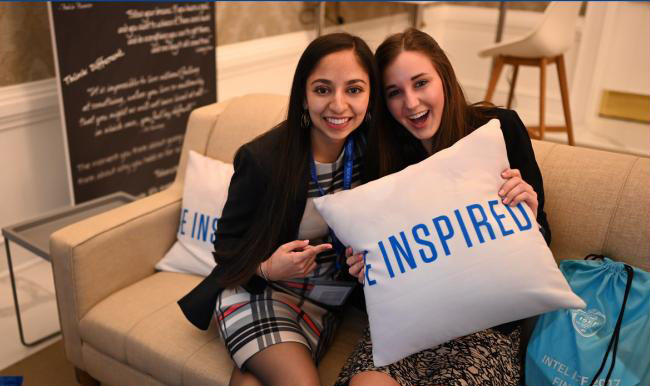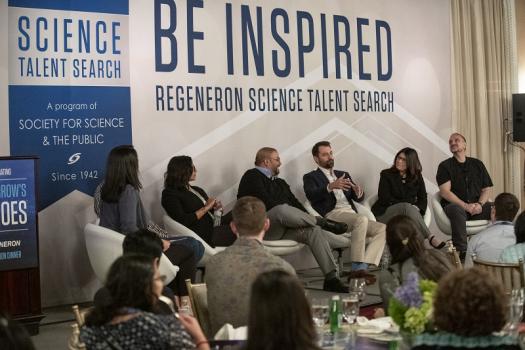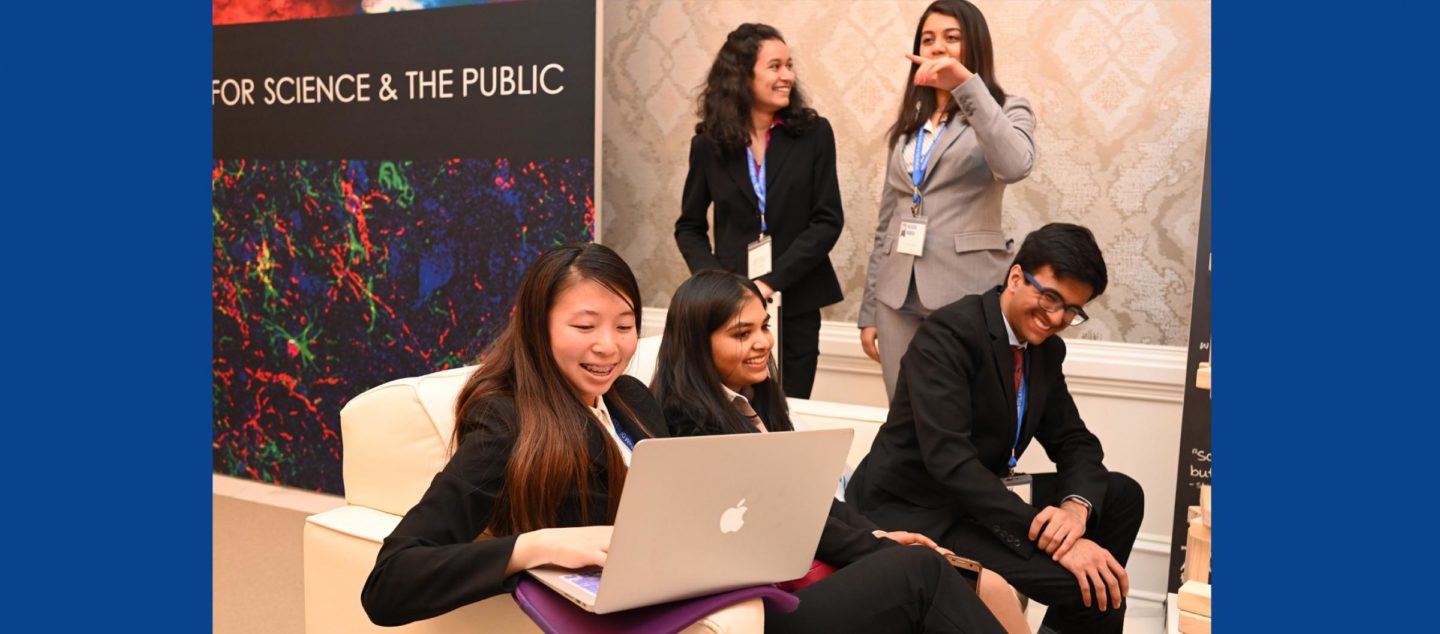Still have questions?
Check out our FAQ and always feel free to email sts@societyforscience.org.
The Regeneron Science Talent Search (STS), the nation’s oldest and most prestigious science and mathematics competition for high school seniors, aims to identify scientific leaders of the future. Alumni have started companies that create life-changing medicines, won Nobel Prizes and so much more. Regeneron STS is owned and produced by the Society for Science. The program awards $3.1 million to deserving students and schools on an annual basis, including a top prize of $250,000. The 2020 application opened in June and the deadline for entry is November 13, 2019 at 8 p.m. Eastern Time.

Through an online application, entrants submit an original science research paper that is up to 20-pages in length, in addition to the other requirements such as essays and recommendation letters. The application is free of charge, and open to high school seniors living in the United States and U.S. citizens living abroad. Students may submit research from any year of school, conducted over any length of time. Whether this is your first research project or you are an experienced science fair participant, we encourage you to apply!
Below, we have highlighted 10 key things an entrant should know to successfully complete the 2020 Regeneron STS application by the deadline. We encourage teachers and mentors to review student applications closely as we have made a few changes to this year’s application. Other resources include the Rules and Entry Instructions and the Regeneron STS Application FAQ.
1) Application and letters of recommendation are due on Wednesday, November 13, 2019 at 8p.m. Eastern Time.
2) The Official Rules have been revised and enhanced for better understanding and clarity.
3) Team Research is not (and has never) been allowed.
4) Test scores are optional and self-reporting of scores is permitted.
5) The recommendation form has been updated for 2020! Make requests early and share with your recommenders that it has changed.
6) The application has been reordered to feature your research first.
7) We want to know about your mentors and those who have supported you along your research journey.
8) Activities—tell us how you spend your time, and what is most important to you.
9) Writing your research report? You might want to check out this one-pager about our guidelines.
10) Essays are an important way for our judges and evaluators to get to know you as a person and scientist.
The Society aims to run a fair and equitable evaluation process to select the top 300 Regeneron STS scholars and top 40 finalists. Every year, Society staff review their processes, and when necessary, make changes to align with college admissions best practices, reduce burden where possible for entrants and their supporting adults, and make sure our judges and evaluators have the information they need in order to make sound decisions. Feedback from students, evaluators and judges, and recommendations from the National Association for College Admission Counseling help drive our decision-making. We consider how our application process can be as fair as possible for students of all backgrounds, and remove burden for students and recommenders whenever possible.

Still have questions?
Check out our FAQ and always feel free to email sts@societyforscience.org.
